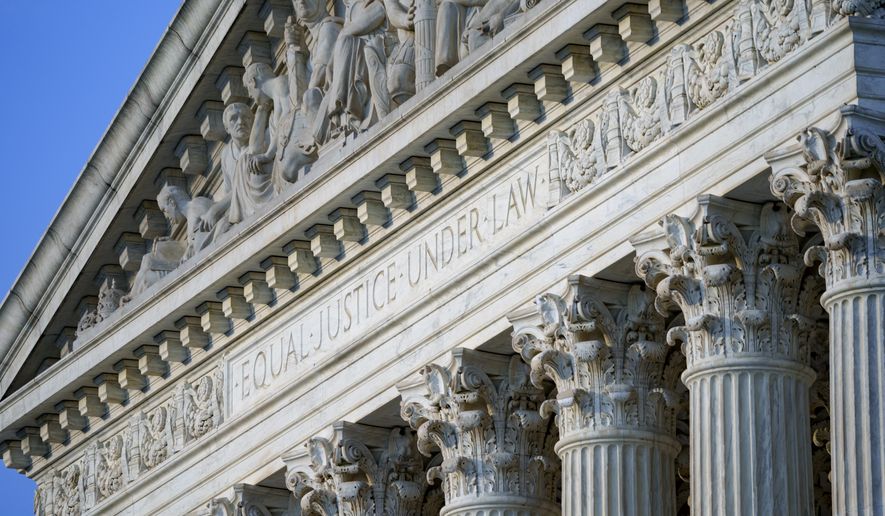The Justice Department urged the Supreme Court to let the Title 42 pandemic border-expulsion policy expire, saying it is prepared to step in and defend against illegal immigration using other tools.
Solicitor General Elizabeth Prelogar said the border situation likely will deteriorate once the policy is lifted, but she said that’s not a justification for keeping a policy that was put in place in 2020 to control the spread of the coronavirus.
“The government recognizes that the end of the Title 42 orders will likely lead to disruption and a temporary increase in unlawful border crossings,” she wrote. “The government in no way seeks to minimize the seriousness of that problem. But the solution to that immigration problem cannot be to extend indefinitely a public-health measure that all now acknowledge has outlived its public-health justification.”
Title 42, which allows the government to quickly expel migrants at the border during a public health emergency, was supposed to expire at midnight Tuesday, but that was put on hold Monday by order of Chief Justice John G. Roberts Jr.
He was responding to an emergency filing by a coalition of Republican-led states pleading to be able to intervene and make the case for continuing Title 42, and asking that the program be left intact while those arguments proceed.
Title 42 has become the government’s most powerful tool in tamping down illegal immigration. Started by the Trump administration during COVID-19, it effectively ended catch-and-release in 2020.
The Biden administration has been far more sparing in its use, with tens of thousands of migrants caught and released every month and encounters with illegal immigrants soaring to record levels of roughly 7,000 a day. But analysts say those numbers could double without Title 42.
A federal district judge in Washington last month ruled the policy illegal and, after some back-and-forth with the Biden administration, set this week’s expiration date.
That’s when the GOP-led states sought to intervene, saying the expected migrant surge would be a catastrophe for them.
An appeals court ruled they moved too slowly and should have intervened months ago.
The Supreme Court must decide whether to keep Title 42 in place while it ponders whether to hear the states’ claims that they should be allowed to intervene.
Lawyers at the American Civil Liberties Union, who represented migrants in the original challenge, urged the high court to shut down the Republican-led states.
The ACLU said there is no argument that the pandemic still requires Title 42 for health reasons — and indeed, the GOP states seeking to intervene have eliminated their COVID-19 emergency policies.
“Their concerns arise not from COVID-19, but from immigration itself — and that is a matter to take up with Congress, not this court,” the ACLU lawyers wrote.
The theory behind expulsions is that it denies illegal immigrants what they are seeking — a foothold in the U.S. The alternative the Biden administration is using, catching and releasing illegal immigrants with the hope that they show up for deportation hearings years in the future, not only gives them a foothold but also entices others to make the attempt, experts say.
The flip side, according to immigrant-rights advocates, is that some legitimate asylum-seekers are stranded in Mexico or in their home countries, where they may face harsh conditions and violence.
Legal wrangling aside, the government’s assertion that it is preparing for an increase in illegal activity was sobering.
Ms. Prelogar said the Department of Homeland Security has moved immigration officers from U.S. Citizenship and Immigration Services to the border to speed up initial reviews of asylum claims.
“Although the end of the Title 42 orders likely will likely lead to a temporary increase in border crossings, the government is prepared to address that serious problem under its Title 8 authorities, including by adopting new policies to respond to the temporary disruption that will occur whenever the Title 42 orders end,” Ms. Prelogar said.
• Stephen Dinan can be reached at sdinan@washingtontimes.com.




Please read our comment policy before commenting.